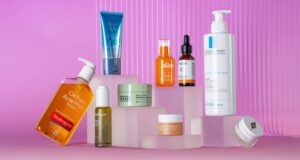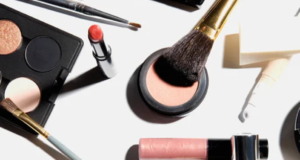Oily skin can be a blessing and a challenge. On one hand, the natural oils can slow down visible signs of aging. On the other, excess shine, enlarged pores, and frequent breakouts can make it tricky to manage. The key to caring for oily skin is finding the right balance—reducing excess oil without stripping the skin of its natural moisture. This guide will walk you through everything you need to know about building the ultimate skincare routine for oily skin.
What Causes Oily Skin?
Oily skin results from overactive sebaceous glands that produce more sebum (oil) than your skin needs. Several factors contribute to this:
- Genetics: Oily skin often runs in families.
- Hormones: Fluctuations in hormones, especially during puberty, pregnancy, or stress, can increase oil production.
- Diet: Consuming greasy or sugary foods can exacerbate oiliness.
- Improper Skincare: Using harsh products or skipping moisturizers can lead to more oil production as your skin compensates for dryness.
Daily Skincare Routine for Oily Skin
Morning Routine
- Cleanse Gently
- Use a gentle foaming or gel cleanser formulated for oily skin.
- Look for ingredients like salicylic acid or benzoyl peroxide to target excess oil and prevent acne.
- Tone to Balance
- Use an alcohol-free toner with ingredients like niacinamide or witch hazel to minimize pores and control oil.
- Hydrate Lightly
- Don’t skip moisturizer! Use an oil-free, lightweight, gel-based moisturizer to hydrate without clogging pores.
- Protect with Sunscreen
- Apply a non-comedogenic, matte-finish sunscreen with at least SPF 30. This prevents sun damage and reduces excess shine.
Night Routine
- Double Cleanse
- Start with a cleansing oil or micellar water to remove makeup and sunscreen.
- Follow with your morning cleanser to thoroughly clean your skin.
- Treat with Active Ingredients
- Incorporate a serum with retinol or BHA (salicylic acid) to target acne, exfoliate, and regulate oil production.
- Moisturize
- Use the same lightweight moisturizer or a hydrating night gel for overnight nourishment.
Weekly Add-Ons
- Exfoliation: Use a chemical exfoliant (AHA/BHA) 1–2 times a week to unclog pores and prevent breakouts. Avoid over-exfoliating, as it can irritate the skin.
- Face Masks: Apply a clay mask once a week to absorb excess oil and tighten pores. Look for kaolin or bentonite clay in the ingredient list.
Ingredients to Look For in Skincare Products
- Niacinamide: Reduces oil production and minimizes pores.
- Salicylic Acid: Exfoliates inside the pores, preventing clogs and breakouts.
- Tea Tree Oil: Has antibacterial properties to fight acne.
- Hyaluronic Acid: Hydrates without adding oil.
- Zinc: Controls sebum production and reduces inflammation.
Skincare Mistakes to Avoid
- Over-Washing
- Washing your face too frequently strips your skin, causing it to produce even more oil. Stick to twice daily.
- Skipping Moisturizer
- Avoiding moisturizer can lead to dehydration, triggering more oil production. Use a non-greasy, hydrating product.
- Using Harsh Products
- Products with alcohol or overly drying agents can damage your skin barrier and worsen oiliness.
- Pore-Clogging Products
- Always check for “non-comedogenic” labels on your skincare and makeup.
Lifestyle Tips for Managing Oily Skin
- Stay Hydrated: Drink plenty of water to keep your skin balanced.
- Watch Your Diet: Limit greasy, sugary, and processed foods. Focus on fresh fruits, vegetables, and omega-3-rich foods.
- Manage Stress: Practice stress-reducing activities like yoga or meditation to keep hormones in check.
- Change Pillowcases: Wash or replace your pillowcases regularly to prevent the buildup of oil and bacteria.
When to See a Dermatologist
If you experience persistent acne, excessive oiliness, or irritation despite following a skincare routine, consult a dermatologist. They can recommend prescription treatments like retinoids or specialized medications to manage your skin effectively.




